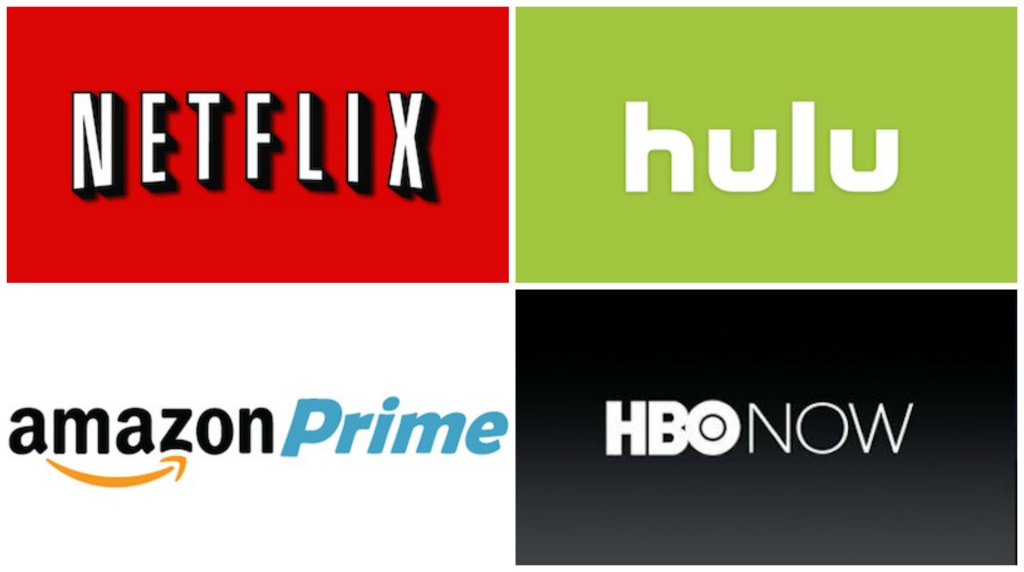The Coming Redundancy of Streaming Entertainment Services
The Entertainment Tsunami

Many who have actually experienced going to video rental centers such as BlockBuster and can actually be saddened by their downfall, have compared it to the decrease of visitation to public libraries. Being able to hold a copy of whatever you were checking out in your hand, had a certain charm that the conveniences of streaming can't quite live up to. This is why it saddens me further when I say that entertainment streaming services like Netflix, Hulu, and Amazon Prime, aren't going to have those conveniences which made the trade worth it, within the next few years.
While the three aforementioned titans certainly have a monopoly on the market currently, this is something they really can't retain due to a little thing called licensing fees. Movies and TV shows need to make some kind of money whenever they're shown. When trying to arrange a film screening at my community college, I was told that the fee I'd need to pay came to roughly $200. $200 just to screen a movie to some college kids.
So, typically when the license expires on a certain property, companies like Netflix or Hulu will examine its performance, and decide whether to pay the license fee and keep it available, or swap it out for something that might perform better. But here's the issue with that method of operation. The companies which produce the content we view on these platforms have the right to take their IPs anywhere. So, when the license expires, if they wish, they don't need to work with the streaming company ever again, because, like forums, Facebook, YouTube, and even Vocal itself has shown us, in the digital age, everyone has a voice.
A new trend has started amongst movie studios and television channels. Since less and less people are paying for cable in exchange for streaming, and movie theater attendance is at an all-time low, any company that can get their content distributed over the web, will. The licensing fees pay to have the shows produced, and be profitable, and cut out the middleman of advertising. (With some services like Hulu retaining ads for low-tier users, as they always have, with premium subscribers not having to sit through them.) But that begs the question, why go through a service to distribute your content, when the very same tools they used to do it, are at your and the rest of the world's fingertips?
Premium cable networks like HBO and Starz offer their shows over traditional streaming services as well as their own smart-device apps. They usually charge about $5.99 a month. But, there also exist services which offer entire packages to different kinds of viewers. You can mix and match based on your own tastes. Thereby, the streaming market inflates further. There's Philo, Roku, CBS All Access, YouTube TV, PlayStation Vue, hell, we even have DC Universe and Stargate Command! Two streaming services, each dedicated to an individual media franchise. As you can see, it gets a little ridiculous. Companies like Netflix and Hulu will try to offset this by having original, in-house content, but even then the varying quality of those movies and shows, as well as the ever-increasing price tag, puts them right back where they were.
The Walt Disney Company, owners of, well, all properties Disney, such as Marvel and Star Wars, have announced plans for their own streaming service. They already have ESPN+ for all their sports content. I'm certain they won't have services for individual IP's, like Warner Brothers is doing with DC Universe, but Disney is already one of the largest entertainment companies in the world. So, now all of their digital content will be behind a paywall of their creation. If you want watch Winnie the Pooh, you're going to pay $14.99 a month for Winnie the Pooh, Indiana Jones, The Muppets, Ewoks, Iron Man, and so much more, with nowhere else to turn.
Now, let's repeat what the premium cable networks and Disney are doing twentyfold. Picture a world, wherein every studio, movie or television, has their own streaming service with all of their content behind a paywall. I don't believe it is too far off. Now, being able to blend services to one's own liking means, no, we don't have to pay for all of them. But, if one we were to pay, their entertainment bill, at the end of the month, would be more than the cable companies could ever get away with charging.
Over the last decade, streaming has garnered such immense popularity, that much of what made it popular in the first place has gone out the window. With any studio able to distribute their content without a middle-man, it seems like the death of the video store, and the cutting of cable was really, all for naught. With the $50 to $100 that already comes with your monthly internet bill, and say the five different streaming services at $5 to $15 a month, it would put you down roughly $200 for only a handful of shows. And bam. We're right back where we started. It really is a sad thing, but gone is the convenience of not having to leave home to rent a movie, or have all your TV seasons in one bundle, when you have a separate bill for every couple of shows and movies you wanna watch.
Yours Vocally,
William Grendel
About the Creator
William Grendel
Spinner of spiderlike yarns, and philosopher of the irrelevant.






Comments
There are no comments for this story
Be the first to respond and start the conversation.